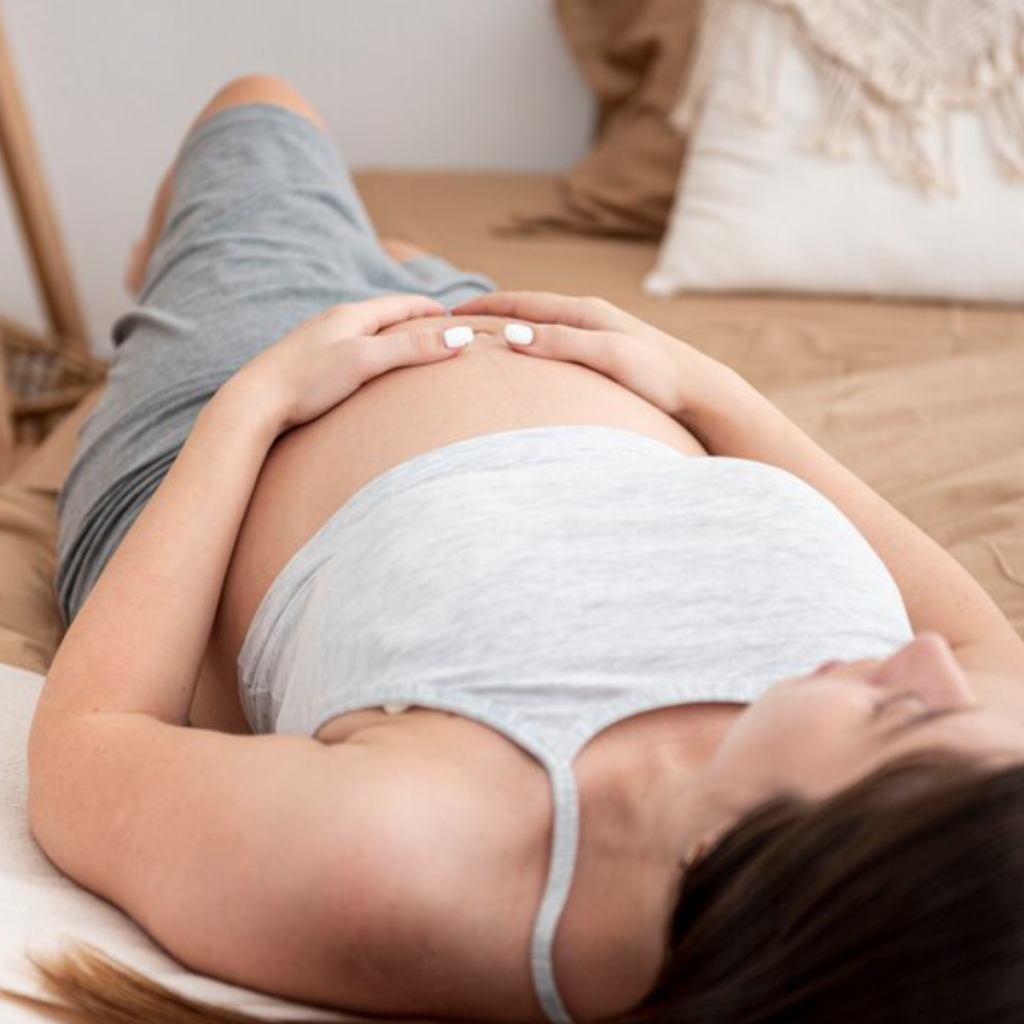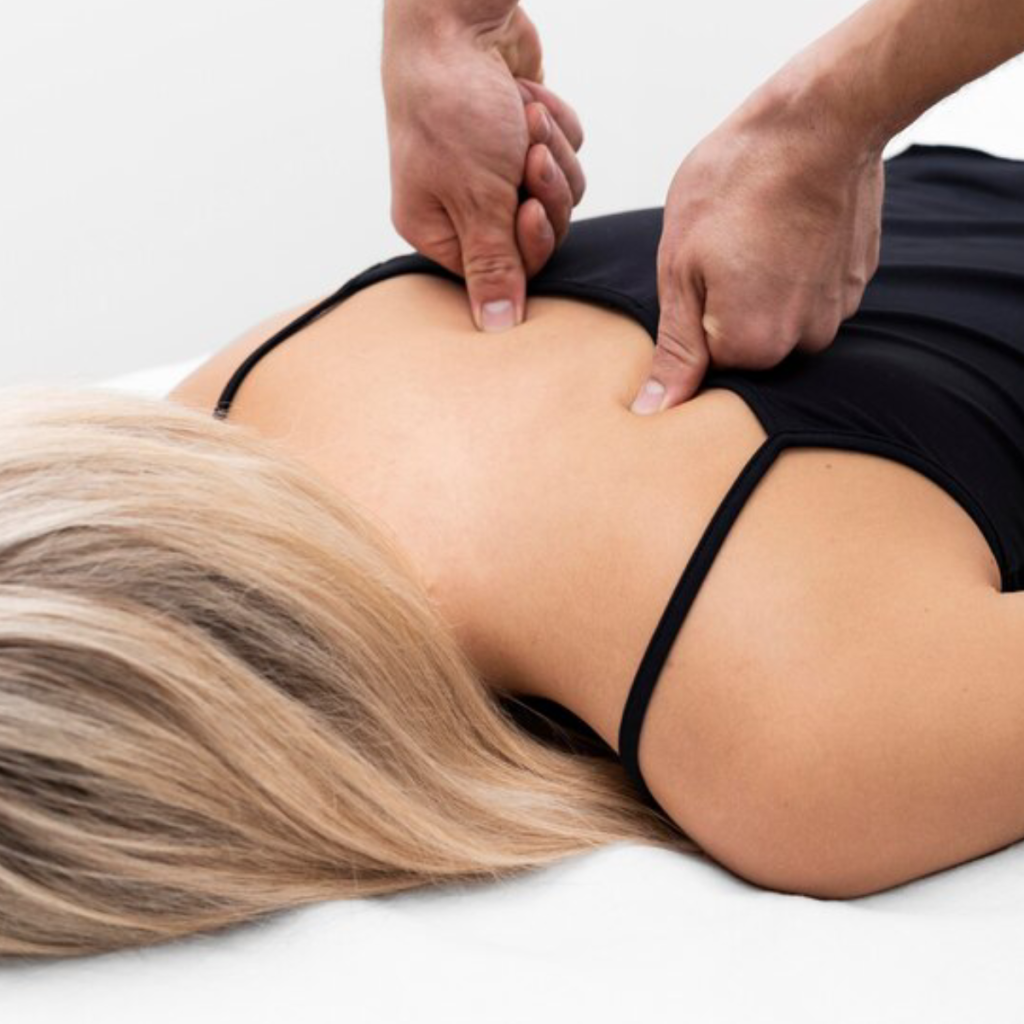Discover how acupuncture can effectively alleviate and address the root causes of back pain during pregnancy.
How Acupuncture Can Address the Underlying Causes of Back Pain During Pregnancy
Welcoming a new life into the world is a magical experience, but it often comes with its fair share of discomforts. One of the most common discomforts that pregnant women face is back pain. Ah, the joys of pregnancy! But fear not, mamas-to-be, because there’s a natural solution that can help alleviate that pesky back pain: acupuncture!

Understanding Back Pain During Pregnancy
Oh, the anatomy of pregnancy-related back pain! Let’s dive into this fascinating topic, shall we?
We all know that carrying a baby bump can put some strain on your back, but do you know why? Well, allow me to enlighten you. As your precious little one grows, your body adapts to accommodate that growing bump. Your center of gravity shifts, and your back muscles and ligaments may become stretched and strained. It’s like your body is doing a little dance to make room for your bundle of joy.
But wait, there’s more! Hormonal changes during pregnancy can also contribute to back pain. The mighty hormone, relaxin, softens the ligaments in your body to prepare for childbirth. While this is ultimately a good thing, it can also lead to instability in your back and pelvis. It’s like a wild rollercoaster ride, only you can’t scream your way through it.
Now, let’s talk about the different types of back pain you may experience during pregnancy. The most common type is lumbar pain, which is felt in the lower back. This can be caused by the increased weight and pressure on your spine as your baby grows. It may feel like a dull ache or a sharp, shooting pain.
Another type of back pain you may encounter is sacroiliac joint pain. This pain is felt in the lower back and buttocks and is caused by the increased mobility and instability of the sacroiliac joints during pregnancy. It can be a throbbing pain that radiates down your legs, making it difficult to walk or stand for long periods.
But don’t worry, there are ways to manage and alleviate pregnancy-related back pain. One of the most effective methods is exercise. Gentle exercises, such as prenatal yoga or swimming, can help strengthen your back muscles and improve your posture. Additionally, using proper body mechanics, such as lifting with your legs instead of your back, can also help prevent further strain.
Another option for pain relief is physical therapy. A skilled physical therapist can provide you with exercises and techniques to reduce pain and improve your overall mobility. They may also recommend the use of supportive devices, such as a maternity belt or a pregnancy pillow, to help alleviate discomfort and provide additional support to your back.
In some cases, your healthcare provider may suggest the use of heat or cold therapy to relieve back pain. Applying a heating pad or taking a warm bath can help relax your muscles and reduce pain. On the other hand, using an ice pack or a cold compress can help reduce inflammation and numb the area.
Lastly, it’s important to maintain good posture throughout your pregnancy. This means sitting up straight, avoiding slouching, and using supportive pillows when sleeping. Good posture can help distribute the weight of your baby more evenly and reduce strain on your back.
So, there you have it! A deeper understanding of back pain during pregnancy. Remember, while it may be uncomfortable at times, it’s a temporary phase that will soon be replaced by the joy of holding your little one in your arms. Hang in there, mama!
The Basics of Acupuncture
Now that we’ve got the lowdown on pregnancy-related back pain, let’s explore the ancient art of acupuncture!
Acupuncture has been around for centuries and is a key component of traditional Chinese medicine. It is a holistic healing technique that aims to restore balance and harmony within the body. The practice of acupuncture is based on the belief that the body has a vital energy called Qi (pronounced “chee”) that flows through pathways known as meridians. When the flow of Qi is disrupted or blocked, it can lead to various health problems. Acupuncture helps to restore the smooth flow of Qi, promoting overall well-being.
But don’t worry, you won’t be poked with a thousand little needles like a voodoo doll. Acupuncture involves the insertion of thin, sterile needles into specific points on your body called acupuncture points. These points are carefully selected based on your individual needs and the specific condition being treated. Each acupuncture point has a unique function and is believed to be connected to certain organs or body systems.
The needles used in acupuncture are incredibly thin, much thinner than the needles used for injections or blood tests. They are typically made of stainless steel and are single-use, ensuring safety and hygiene. The insertion of the needles is generally painless, and many practitioners describe the sensation as a slight tingling or pressure. So, you can let go of any acupuncture needle phobias you may have!
During an acupuncture session, you will typically lie down on a comfortable table while the practitioner gently inserts the needles into the designated acupuncture points. The number of needles used can vary depending on your specific needs. Once the needles are in place, you may be left to relax for a period of time, usually around 20-30 minutes. This allows the body to absorb the therapeutic effects of the treatment.
Acupuncture is known to be effective for a wide range of conditions, including pain management, stress reduction, digestive disorders, respiratory issues, fertility support, and much more. It is often used in conjunction with other therapies to enhance overall healing and well-being.
It’s important to note that acupuncture should always be performed by a trained and licensed practitioner. They will have a deep understanding of the human body, acupuncture points, and the appropriate techniques to use for different conditions. So, if you’re considering acupuncture as a form of treatment, make sure to seek out a qualified professional.
In conclusion, acupuncture is a fascinating ancient practice that offers a holistic approach to healing. By stimulating specific points on the body, acupuncture helps to restore balance and promote overall well-being. So, if you’re curious about this ancient art, don’t hesitate to give it a try and experience the benefits for yourself!

Acupuncture and Pregnancy: A Safe Combination?
Safety first, ladies! Let’s talk about how acupuncture and pregnancy can go hand in hand.
Now, you might be wondering if acupuncture is safe during pregnancy. After all, you have the ultimate responsibility of protecting that tiny human growing inside you. Well, fear not! Acupuncture is generally considered safe for pregnant women when performed by a licensed and trained practitioner.
During pregnancy, a woman’s body goes through numerous changes to support the growth and development of the baby. These changes can often lead to discomfort, such as back pain, nausea, and fatigue. This is where acupuncture comes in. Acupuncture, an ancient Chinese practice, involves the insertion of thin needles into specific points on the body to stimulate energy flow and promote healing.
Research has shown that acupuncture can be beneficial for pregnant women in managing various pregnancy-related symptoms. For example, studies have found that acupuncture can help alleviate morning sickness, reduce back and pelvic pain, and improve sleep quality. It can also help with anxiety and stress, which are common during pregnancy.
Of course, there are a few precautions to keep in mind. Make sure to inform your acupuncturist that you’re pregnant, as certain acupuncture points are contraindicated during pregnancy. But hey, no worries! Your acupuncturist is a pro and will know exactly which points to avoid.
When you visit your acupuncturist, they will take a detailed medical history and discuss any specific concerns you may have. They will tailor the treatment to your individual needs, ensuring both your safety and the well-being of your baby. The needles used in acupuncture are extremely thin and sterile, minimizing any potential risks.
It’s important to note that acupuncture should always be performed by a licensed and trained practitioner who specializes in treating pregnant women. They have the knowledge and expertise to provide safe and effective treatment.
So, if you’re pregnant and considering acupuncture, don’t hesitate to give it a try! Just remember to consult with your healthcare provider and choose a reputable acupuncturist. With the right precautions in place, acupuncture can be a valuable addition to your prenatal care, helping you navigate the joys and challenges of pregnancy with greater ease.
Acupuncture as a Solution for Pregnancy-Related Back Pain
Here comes the exciting part: how acupuncture can target that pesky pregnancy back pain!
Acupuncture works its magic by stimulating specific acupuncture points that are known to alleviate pain and promote overall well-being. When it comes to pregnancy-related back pain, acupuncture can help reduce inflammation, increase blood flow, and decrease muscle tension, all without using any medications that could potentially harm your little one. Talk about a win-win situation!
Not only can acupuncture provide relief for your achy back, but it can also improve your overall pregnancy experience. It’s like getting a warm hug from Mother Nature herself!
What to Expect During an Acupuncture Session
Curious about what an acupuncture session entails? Let me guide you through the mystical realm of needle therapy!
Before your first acupuncture appointment, it’s essential to prepare yourself mentally and physically. Make sure to wear loose and comfortable clothing, as well as have a light meal beforehand to avoid feeling lightheaded during the session. Trust me, you don’t want to be grumbling like a hungry bear while those little needles work their magic!
During the session, your acupuncturist will carefully insert the needles into specific points on your body. Relax your mind and let your body embrace the gentle flow of energy. Some people may even find the experience so relaxing that they drift off into a blissful nap. Hey, it’s like getting a spa treatment for your back!
After the session, you might experience some mild soreness or bruising at the insertion points, but don’t fret. It’s a small price to pay for the potential relief you’ll receive!
The Acupuncture Process: Step by Step
1. Consultation: You’ll have an initial consultation with your acupuncturist to discuss your symptoms, medical history, and any concerns you may have. It’s like a heart-to-heart chat with your new best friend!
2. Diagnosis: Your acupuncturist will carefully assess your condition and determine the best course of action. Think of it as a personalized treatment plan designed just for you!
3. Needle insertion: The acupuncture needles will be gently inserted into the designated acupuncture points. Take a deep breath and let the healing powers flow through you!
4. Relaxation time: Once the needles are in place, it’s time to sit back, relax, and let the acupuncture do its thing. Close your eyes, take a deep breath, and imagine yourself floating on a cloud of relief.
5. Needle removal: After the appropriate amount of time, your acupuncturist will carefully remove the needles. It’s like bidding farewell to old friends who have brought you comfort. Don’t worry; they won’t be offended!
6. Post-session care: Your acupuncturist may provide you with post-session care instructions, such as avoiding strenuous activities or applying heat or cold to specific areas. It’s like getting a personalized prescription for post-acupuncture bliss!
So, dear mamas-to-be, if you’re tired of waltzing with back pain during pregnancy, give acupuncture a whirl. Not only can it provide relief for that achy back, but it can also bring a sense of overall well-being to your pregnancy journey. Embrace the ancient art of acupuncture and let Mother Nature work her magic!



